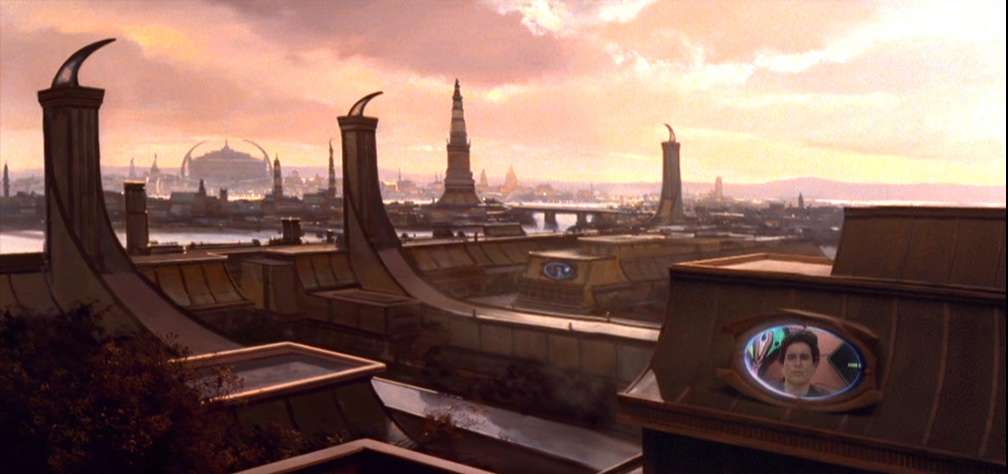Scientists have outlined which moons and planets are most likely to harbour extra-terrestrial life.
Among the most habitable alien worlds were Saturn's moon Titan and the exoplanet Gliese 581g - thought to reside some 20.5 light-years away in the constellation Libra.
The international team devised two rating systems to assess the probability of hosting alien life.
They have published their results in the journal Astrobiology.
In their paper, the authors propose two different indices: an Earth Similarity Index (ESI) and a Planetary Habitability Index (PHI).
"The first question is whether Earth-like conditions can be found on other worlds, since we know empirically that those conditions could harbour life," said co-author Dr Dirk Schulze-Makuch from Washington State University, US.
"The second question is whether conditions exist on exoplanets that suggest the possibility of other forms of life, whether known to us or not."
As the name suggests, the ESI rates planets and moons on how Earth-like they are, taking into account such factors as size, density and distance from the parent star.
The PHI looks at a different set of factors, such as whether the world has a rocky or frozen surface, whether it has an atmosphere or a magnetic field.
It also considers the energy available to any organisms, either through light from a parent star or via a process called tidal flexing, in which gravitational interactions with another object can heat a planet or moon internally.
And finally, the PHI takes into account chemistry - such as whether organic compounds are present - and whether liquid solvents might be available for vital chemical reactions.
The maximum value for the Earth Similarity Index was 1.00 - for Earth, unsurprisingly. The highest scores beyond our solar system were for Gliese 581g (whose existence is doubted by some astronomers), with 0.89, and another exoplanet orbiting the same star - Gliese 581d, with an ESI value of 0.74.
The Gliese 581 system has been well studied by astronomers and comprises four - possibly five - planets orbiting a red dwarf star.
HD 69830 d, a Neptune-sized exoplanet orbiting a different star in the constellation Puppis, also scored highly (0.60). It is thought to lie in the so-called Goldilocks Zone - the region around its parent star where surface temperatures are neither too hot nor too cold for life.
The highly rated worlds from our own solar system were Mars, with a value of 0.70, and Mercury, with 0.60.
The Planet Habitability Index produced different results. The top finisher here was Saturn's moon Titan, which scored 0.64, followed by Mars (0.59) and Jupiter's moon Europa (0.47), which is thought to host a susbsurface water ocean heated by tidal flexing.
The highest scoring exoplanets were, again Gliese 581g (0.49) and Gliese 581d (0.43).
In recent years, the search for potentially habitable planets outside our solar system has stepped up several gears. Nasa's Kepler space telescope, launched into orbit in 2009, has found more than 1,000 candidate planets so far.
Future telescopes may even be able to detect so-called biomarkers in the light emitted by distant planets, such as the presence of chlorophyll, a key pigment in plants.
EARTH SIMILARITY INDEX
Earth - 1.00
Gliese 581g - 0.89
Gliese 581d - 0.74
Gliese 581c - 0.70
Mars - 0.70
Mercury - 0.60
HD 69830 d - 0.60
55 Cnc c - 0.56
Moon - 0.56
Gliese 581e - 0.53
PLANET HABITABILITY INDEX
Titan - 0.64
Mars - 0.59
Europa - 0.49
Gliese 581g - 0.45
Gliese 581d - 0.43
Gliese 581c - 0.41
Jupiter - 0.37
Saturn - 0.37
Venus - 0.37
Enceladus - 0.35
Story Here









